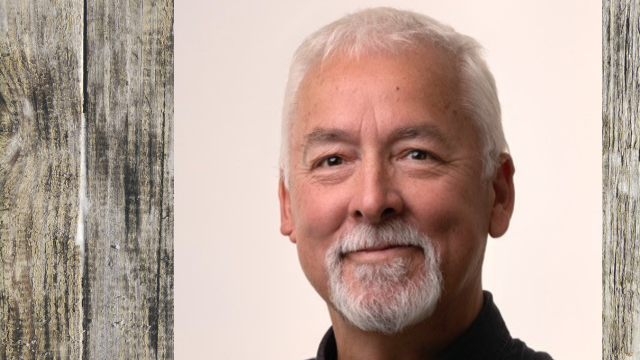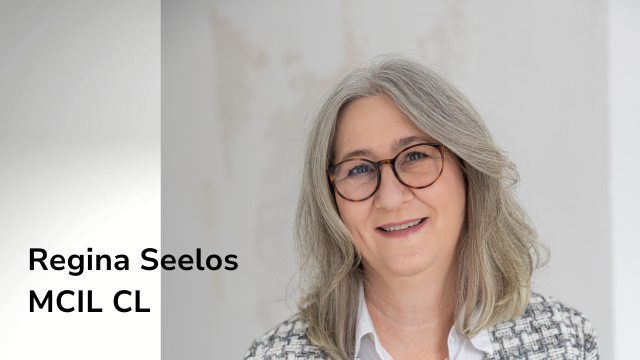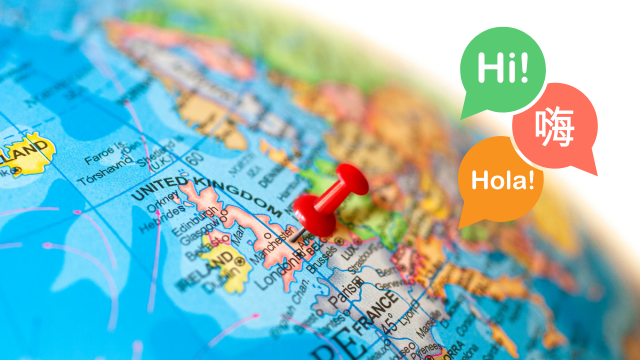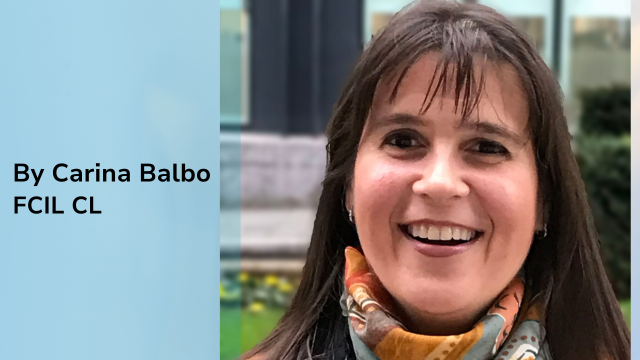-
QUALIFICATIONS
- For Linguists Worldwide
- For UK Public Services
- Preparation
- Policies & Regulation
-
MEMBERSHIP
- Join CIOL
- Professional Membership
- Affiliate Membership
- Chartered Linguist
- Already a member?
- Professional conduct
- Business & Corporate Partners
-
LANGUAGE ASSESSMENTS
- English
- All Other Languages
-
EVENTS & CPD
- Webinars & Events
- CIOL Conferences
- Networks
- CIOL Mentoring
-
NEWS & VOICES
- News & Voices
- CIOL eNews
- CIOL Awards
- The Linguist Magazine
- Jobs & Ads
-
RESOURCES
- For Translators & Interpreters
- For Universities & Students
- Standards & Norms
- CIOL & AI
- All Party Parliamentary Group
- In the UK
- UK Public Services
- Find-a-Linguist
NEWS & VOICES

By John Franks
We never expect to eat anything when we’re interpreting at the dinner table. We might be able to take a sip from our glass between breaths, but our food will just sit there and get cold. If you’ve been around a while, I’m not telling you anything you don’t already know, but humour me, please, for a moment and read on. As the diners get merrier, we, of...

‘WoLLoW’, an answer to the teaching of languages in primary schools?
By John Claughton
The National Curriculum sets out the purpose of language teaching in our schools like this.
‘A high-quality languages education should foster pupils’ curiosity and deepen their understanding of the world. The teaching should enable pupils to express...

To highlight the importance of language learning, Duolingo is challenging Westminster MPs and peers to learn a language in 2025 and compete to be the first ever Westminster Language champion. Starting on January 1st and running to the end of March, the three best performing individuals will win a share of £20,000 for a charity of their choosing, with the winner crowned Duolingo's...

The cross-party House of Lords Public Services Committee has written to the Lord Chancellor.
The letter draws on written and oral evidence from the Chartered Institute of Linguists, as well as evidence from ITI, NRPSI, the Ministry of Justice, The Big Word, ATC, the legal profession, academics and others.
The letter is available on the Public Services...

By Professor Paul Bishop
Abercromby Street in the Calton district of Glasgow is home to the Calton Weavers’ Cemetry, an historical burial ground established in 1787 by the Calton Incorporation of Weavers. Pride of place in the cemetery is a monument to the “Martyrs,” or those Weavers who were killed during the strike of 1787.
In the eighteenth and...

By Regina Seelos, German/English translator
Like the global markets, especially in the translation sector, the German market is in uproar or turmoil. There’s still tonnes of work out there, but tech companies want to make us – and also our customers – believe that freelance translators will be out of work soon because AI can do it all. Many colleagues have also...

By John Worne
In their recent publication Languages in UK Education Wendy Ayres-Bennett and Charles Forsdick present a fascinating summary of language education in the UK, capturing distinct approaches across its four nations from which policymakers can learn.
Diverging Policies, Common Challenges
England, Scotland, Wales, and Northern...

By Carina Balbo
In my 25 years in the translation industry, I don’t think I’ve ever received as many scam emails as I have in the past few months. While many of us can spot an obvious scam, it’s clear that scammers are becoming increasingly savvy, presenting offers that can appear legitimate at first glance. As translators, we must stay vigilant, not only to protect...

by Gwenydd Jones
I’m writing today buried in the autumn leaves of blue-skied Andorra. This year, I’m using my digital nomadism for a winter of skiing and steaming mugs of Catalan: que nevi, que nevi, que nevi.
Freelancing online today is all change but three constants remain...
Excellence, marketing and diversification. On the days when I choose...

Lt Col John Cross (rtd) lives in Nepal and is in his fifth decade of CIOL membership.
He speaks a great many languages – including some very rare ones as you will read below – and has had several books published drawing from his 99 year life with languages, published by Pen & Sword Books https://www.pen-and-sword.co.uk/J-P-Cross/a/870.
In a significant...
The Chartered Institute of Linguists (CIOL), Incorporated by Royal Charter, Registered in England and Wales Number RC 000808 and the IoL Educational Trust (IoLET), trading as CIOL Qualifications, Company limited by Guarantee, Registered in England and Wales Number 04297497 and Registered Charity Number 1090263. CIOL is a not-for-profit organisation.
